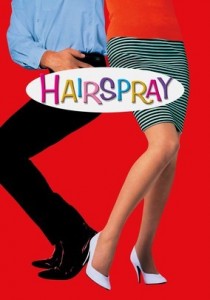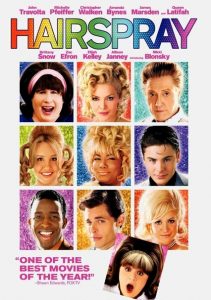Airport 1975-1974
Director Jack Smight
Starring Charlton Heston, Karen Black, George Kennedy
Scott’s Review #1,060

Reviewed September 8, 2020
Grade: B+
Possessing all the disaster film genre schmaltz, proper trimmings, and then some, Airport 1975 (1974) is good, hammy entertainment that gleefully satisfies, though artistic types will be embarrassed to admit how much they like it.
In parallel with The Towering Inferno (1974) and Earthquake (1974), the three were some of the highest-grossing films of the year and it is little wonder why. The offering has enough adventure and peril to satisfy the entire family.
I watched this film practically in tandem with Airport (1970) and it feels a letdown by comparison, but that hardly matters. Both are very good.
With juicy anticipation, the filmmakers paid a ton of cash to secure a bevy of Hollywood stars of yesteryear assuring they could rake in the box office receipts.
Most are past their prime but still marketable, what a treat to see legendary silent film star Gloria Swanson playing herself as a passenger.
The unequivocal star and hero of the film is Charlton Heston, as he also was in Earthquake. Karen Black, Myrna Loy, Linda Blair, Susan Clark, Nancy Olson, and George Kennedy (reprising his role from the first Airport) round out the stellar cast.
Worth its price of admission is watching the opening credits to see who is in the cast.
Unlike Airport, which wisely spent much of its time inside the actual airport setting up the events and stories, Airport 1975 takes flight right away and crafts its trials and tribulations within the aisles and cockpit of the plane.
We learn right off the bat that the main romantic couple is Heston and Black. Captain Alan Murdock (Heston) apparently cannot commit to Chief Stewardess Nancy Pryor (Black) and they plan to meet up in Los Angeles to discuss the drama further.
We know they will have more to do with each other as her flight takes off for La La Land.
Quickly, a small plane flown by businessman Scott Freeman (Dana Andrews) is diverted to Salt Lake City airport and he suffers a massive heart attack while descending.
His plane naturally crashes into the cockpit of the enormous Boeing 747 killing two pilots and blinding the other.
With nobody able to fly the plane, Nancy must figure out how to divert disaster while cascading over mountains and contending with a fuel leak. Murdock and crew try to land the plane remotely or get somebody up there to save the day.
Predictably, Murdock is that man.
If Airport 1975 weren’t so damned fun it would be offensive since it’s riddled with gender stereotypes. Screenwriter, Don Ingalls, composes a project so fraught with machismo and masculinity, that the female characters have little chance to do much of anything without being saved by a man.
Let’s cite a couple of examples. Nancy is left alone in the open cockpit to navigate the plane.
Worthy of mention is that her hair remains perfect throughout.
Anyway, Murdock must explain to her how to check various controls which he does as if she were a five-year-old learning the alphabet, referring to a picture of the “little airplane” and calling her “dear”.
She rattles off a puzzled “what?” before figuring out where or what the “little airplane” is.
Secondary Stewardess Bette (Christopher Norris) is boy crazy, asking Nancy if the flight crew is “sexy” before making googly eyes at Latin pilot, Julio (Erik Estrada). He is married but that doesn’t seem to bother either of them.
They flirt while he orders her to bring him a cup of coffee. The male characters telling the female characters to get them drinks is a common theme in Airport 1975.
Naturally, Murdock eventually makes it on board to take over the controls and land the plane.
We imagine Nancy’s character thinking, “Good Heavens, thank goodness a man arrived just in the nick of time to save all of us!”. She promptly is sent to get Murdock a drink and fluff pillows.
But these are gripes that I can look past with the knowledge that if this film were made in 2020 Nancy would either land the plane or Murdock would be a female character and Nancy a male character.
Imagine that!
The real threats are the peril and drama associated with the events on the flight.
A sick kid (Linda Blair) must reach land quickly so that she can be provided medical assistance while a crack in the airplane ceiling could burst at any moment killing everyone on board.
For popcorn-fueled entertainment sure to please any viewer Airport 1975 (1974) is a perfect late-afternoon, rainy day suggestion.
Advisable is to not look too deeply into the stereotypes and contrived setups or this will ruin the fun. Instead, hop aboard and enjoy the bumpy flight from the comfy cushions of your living room with the assurance that you will land safe and sound.


